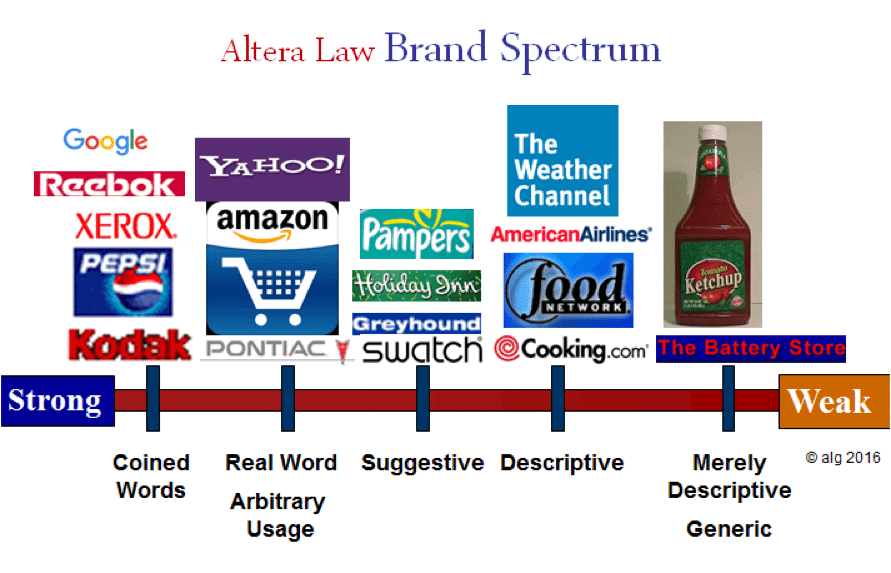How crazy would it be to build a brand you CAN’T own?

It seems almost absurd to ask the question, but I estimate that 65% of privately held (small) companies can’t own their premier brand. The single most important element of brand building is OWNING your brand because, without ownership, brand equity is zero and will remain zero forever. Like a sand castle, your brand foundation is non-existent
Brand ownership is very counter-intuitive. Strong brands are completely abstract. They tell you nothing about the product/service to which they pertain. The more the brand tends to describe the product or even a feature of the product, the weaker they become. If they are weak, they can be copied, until they become so diluted by other brand imitators, that they are eventually worthless.
 Many branding experts believe one can block the competition by “owning a descriptive brand”. Nothing could be more misguided. Think about it. Can one own the word Soap for soap products and thereby block others from using the name? No, but it hasn’t stopped uninformed companies from trying. Within the sandcastle analogy, this amounts to sand on sand.
Many branding experts believe one can block the competition by “owning a descriptive brand”. Nothing could be more misguided. Think about it. Can one own the word Soap for soap products and thereby block others from using the name? No, but it hasn’t stopped uninformed companies from trying. Within the sandcastle analogy, this amounts to sand on sand.
The brand spectrum shows the world’s most valuable and ownable brands. On the left are the strong brands, and the weaker or non-brands are on the right. It is no accident that the most valuable brands in the marketplace are stronger.
Weak brands, including the weakest of all, descriptive and generic terms, are not able to be branded, therefore they can be legally used by anyone. For example, The Weather Channel® is a weak brand because although it’s not generic, the brand is difficult (and expensive) to defend against competitors. None of the words within it — “the”, “weather” or “channel” are ownable, so it is easy to dilute the brand. Weather Nation™ is vying for the same air-space on cable and satellite networks, and The Weather Channel is powerless to stop it.
This is the ultimate problem. A weak brand becomes diluted by the crowding around of similar brands, until the public can’t remember one from the next. However, strong brands can be defended against dilution.
I am sure that at the time The Weather Channel was selected, it seemed like a really great idea to use a descriptive name in hopes of “owning the category”, but it is and always will be a legally impossible strategy.
Google, other hand, is an entirely made up word, so its strength is supreme. What would have happened if Google had made the wrong choice and called their company SEARCHCO?
© ALTERA LAW 2016
Michael Lasky is an intellectual property attorney at Altera Law Intellectual property law firm. He is the author of the new book The Good Brand – How companies create valuable brands. He can be reached at mlasky@brandcentering.com
Published on: December 21, 2016